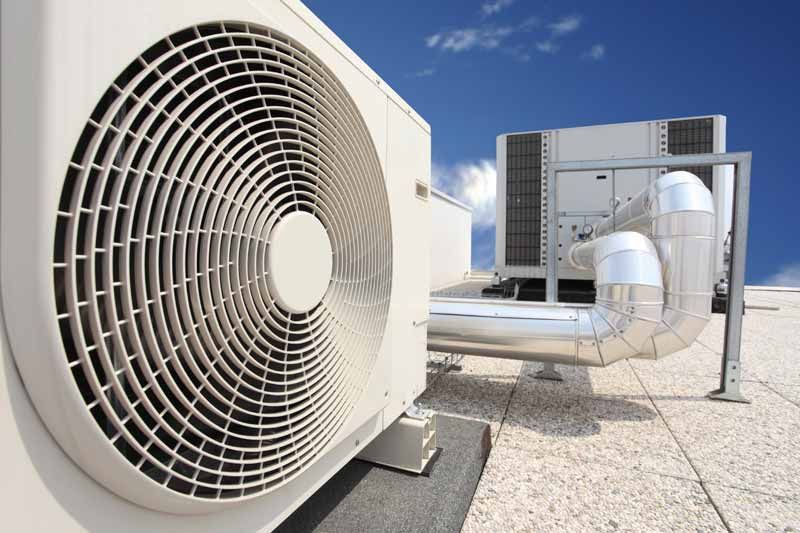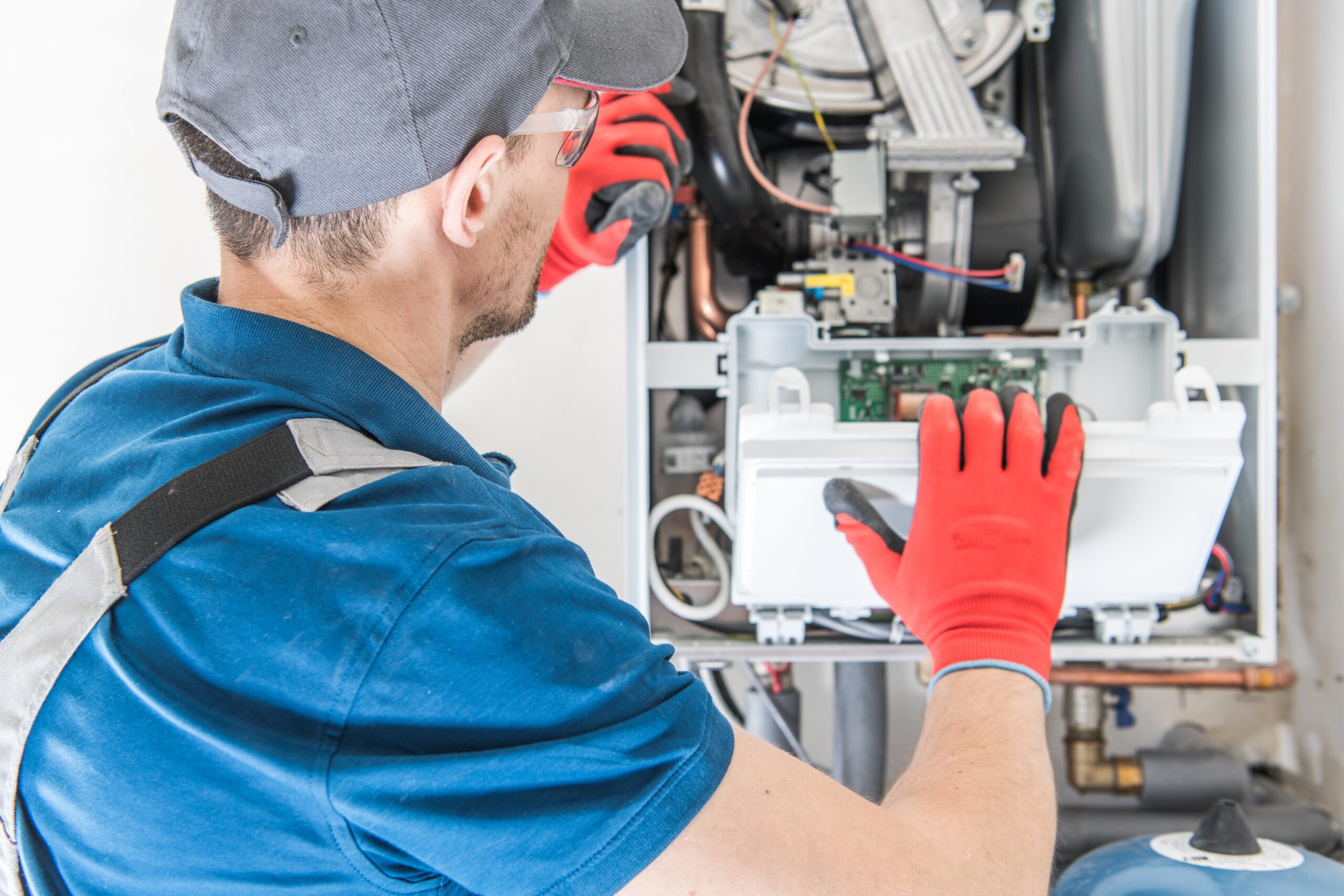Boost Your Home’s Efficiency with Routine heat pump service
Boost Your Home’s Efficiency with Routine heat pump service
Blog Article
Exactly How a Heatpump and Furnace Interact to Optimize Your Home's Home heating Effectiveness
Understanding just how a heatpump and furnace collaborate is important for homeowners looking for effective heating solutions. Each system has its strengths, giving a well balanced technique to home convenience. The warm pump excels in modest temperatures, while the furnace delivers rapid heat throughout extreme cold. This harmony not only decreases energy prices however additionally improves the life-span of both home appliances. What factors influence this cooperation, and exactly how can homeowners optimize their advantages?
Understanding Warm Pumps: Just How They Work
Lots of individuals may be strange with their inner functions, heat pumps play a crucial function in modern-day heating systems. These tools operate by transferring warmth from one place to another, using the principles of thermodynamics. In cooler months, a heatpump removes warm from the outdoors air, ground, or water, and transfers it indoors to warm up the home. Alternatively, during warmer months, it can reverse the procedure, serving as an a/c unit by removing heat from inside to the outside.Heat pumps consist of an evaporator, condenser, compressor, and growth valve. The cooling agent within the system absorbs warmth as it evaporates at reduced temperatures and pressures. The compressor then enhances the pressure and temperature level of the cooling agent, allowing it to launch warmth as it condenses. This efficient process can considerably minimize energy usage contrasted to standard heating approaches, making heat pumps a sustainable choice for environment control in homes.
The Role of Furnaces in Home Home Heating
Heaters play an important function in home heating by supplying a trusted resource of heat throughout the chillier months. They run by creating warmth via combustion or electric resistance, dispersing it throughout the home by means of air ducts or radiant systems. The efficiency of a heater is commonly determined by its Annual Gas Usage Performance (AFUE) score, which suggests how successfully the unit converts gas right into heat.Furnaces can utilize numerous energy sources, consisting of natural gas, power, oil, or propane, enabling house owners to select the most ideal alternative for their demands. Unlike heatpump, which might battle in extreme cold, furnaces preserve constant efficiency, making certain that indoor temperatures continue to be comfortable no matter of outdoor problems. In addition, modern-day heating systems typically come outfitted with advanced technology, such as variable-speed blowers and clever thermostats, boosting their efficiency and responsiveness. This adaptability makes heaters an important element in all-encompassing home heating strategies.

Benefits of Utilizing Both Equipments Together
Integrating the strengths of both heating systems and heatpump can bring about a more efficient and effective home heating remedy. Utilizing both systems allows homeowners to benefit from the heatpump's energy efficiency throughout milder temperature levels while depending on the heater for more extreme cold problems. This dual approach can substantially lower energy prices, as heatpump consume much less power than traditional heating techniques when temperature levels are moderate.Additionally, using both systems together can boost comfort levels in the home. Warm pumps can supply regular, also home heating, while furnaces can quickly raise ambient temperatures when required. The combination of both systems can prolong the life expectancy of tools by minimizing wear and tear on each device, as they share the workload. Ultimately, homeowners can take pleasure in a well balanced, affordable home heating service that adjusts seamlessly to varying weather conditions, making sure a cozy and welcoming home throughout the cold weather.
Exactly How Warmth Pumps and Furnaces Complement Each Other
When house owners incorporate heat pumps and furnaces, they produce a corresponding heater that takes full advantage of performance and comfort. Heat pumps operate by transferring heat from the outside air or ground, making them highly effective in moderate climates. They stand out during milder temperatures, offering economical home heating. Alternatively, heaters create warmth via burning or electrical resistance, delivering solid, immediate heat during extreme chilly conditions.The combination of these two systems enables vibrant modifications based on temperature variations. Throughout warmer months or milder winter months days, the heatpump can take the lead, saving energy and decreasing costs. As temperatures drop, the furnace can flawlessly involve, making certain regular warmth throughout the home. This synergy not just enhances energy usage however also boosts the life-span of both systems, as each device operates within its perfect efficiency variety. Together, they develop a balanced environment that adjusts to varying environment demands.
Maximizing Effectiveness: Tips for Homeowners
Homeowners can boost their heating performance with several functional strategies. Developing a regular upkeep schedule, incorporating smart thermostat modern technology, and carrying out effective insulation and securing options are essential steps. These actions not only boost comfort yet likewise reduce power prices.
Normal Maintenance Set Up
To guarantee maximum home heating effectiveness, developing a routine upkeep timetable is necessary for any home. House owners should prioritize regular inspections of both warm pumps and heaters to determine peak performance. This consists of altering air filters each to 3 months, as blocked filters can substantially decrease effectiveness. In addition, organizing professional maintenance a minimum of annually allows service technicians to recognize and address prospective problems prior to they intensify. Home owners should also clean up the heatpump's outside device to protect against debris buildup that can impede air flow. By adhering to a regular maintenance routine, house browse this site owners not just improve their heating unit' effectiveness however likewise prolong their life expectancy, causing higher convenience and reduced energy costs throughout the colder months.
Smart Thermostat Integration
Integrating a smart thermostat right into a home heater can considerably enhance power effectiveness, particularly as it enables specific control over temperature level settings. These devices can find out the house owner's routine and preferences, instantly changing the temperature to optimize convenience while decreasing energy use. As an example, they can lower heating throughout times when the home is vacant, decreasing unneeded usage. Lots of smart thermostats likewise provide real-time power use data, making it possible for house owners to make informed choices about their heating habits. Furthermore, remote accessibility through smart device apps enables customers to adjust setups from anywhere, ensuring the home is warm upon return. On the whole, wise thermostat assimilation not only boosts comfort yet considerably adds to power financial savings and effectiveness.
Insulation and Sealing Solutions
Smart thermostats play an essential role in power efficiency, but their efficiency can be substantially enhanced by appropriate insulation and securing remedies. Property owners must focus on insulating floorings, walls, and attic rooms to decrease heat loss. Top notch insulation products, such as spray foam or fiberglass, can greatly improve thermal resistance. Furthermore, sealing spaces around doors, air ducts, and home windows stops cold air infiltration and heat getaway. Weatherstripping and caulking work techniques for attending to these leaks - heat pump replacement ooltewah tn. Normal assessments for air leakages, together with using blower door tests, can help identify trouble locations. By purchasing insulation and sealing, homeowners can optimize the efficiency of their heater, inevitably bring about minimized energy intake and lower energy expenses
Common Misconceptions Regarding Warm Pumps and Furnaces
What mistaken beliefs surround heat pumps and heaters? Several people incorrectly believe that heat pumps are inadequate in chillier climates. In truth, modern warm pumps are made to run successfully also in low temperature levels, providing reputable home heating throughout winter. Another usual misconception is that furnaces are always a lot more efficient than heatpump. Nonetheless, this relies on the specific power resources and performance scores of the units in inquiry. Some might also assume that making use of both systems all at once is unneeded, yet in truth, this combination can enhance home heating effectiveness, especially throughout extreme climate condition. Additionally, individuals frequently think that heat pumps need consistent maintenance, when in reality, they have comparable upkeep needs to standard official site home heating systems. By exposing these misconceptions, home owners can make more educated choices concerning their home heating options, eventually bring about improved comfort and energy performance in their homes.
Upkeep Considerations for Combined Solutions

Frequently Asked Concerns
Can Warmth Pumps Job Efficiently in Very Cold Climates?
Heat pumps can have a hard time in very cool climates due to minimized performance and warmth extraction limitations. Developments in innovation have actually led to designs created for far better efficiency in such conditions, improving their feasibility in severe atmospheres.
For How Long Do Heat Pumps and Furnaces Generally Last?
Heatpump generally last 15 to 20 years, while heaters have a life expectancy of 15 to about his 30 years. Normal upkeep can prolong their durability, making sure effective operation and reducing the demand for early substitutes.

What Is the Average Expense of Installing Both Solutions?
The ordinary expense of mounting both a heat pump and a heater generally varies in between $5,000 to $10,000 - heat pump replacement ooltewah tn. Factors influencing this price include system size, installment complexity, and regional labor rates
Exist Tax Obligation Incentives for Utilizing Energy-Efficient Heating Systems?
Lots of property owners ask about tax rewards for energy-efficient heating unit. Numerous federal and state programs usually offer credit ratings or refunds, motivating the fostering of lasting technologies to reduce energy usage and advertise ecological duty.
Just how Do I Pick the Right Dimension Warmth Pump and Furnace?
Choosing the right size heatpump and furnace includes computing the home's square video, taking into consideration insulation high quality, and examining regional climate. Consulting a specialist can assure ideal system efficiency and power efficiency based on particular needs. ductless mini splits. Understanding how a heat pump and heater job with each other is necessary for home owners looking for effective heating remedies. In cooler months, a warm pump extracts heat from the outdoors air, ground, or water, and transfers it inside your home to warm the living space. When house owners integrate warmth pumps and heating systems, they develop a complementary home heating system that maximizes effectiveness and comfort. Warmth pumps run by moving warm from the outside air or ground, making them extremely effective in moderate environments. Warm pumps can have a hard time in very chilly climates due to decreased efficiency and heat removal restrictions
Report this page